Dorking was enjoying a warm summer in the weeks leading up to the outbreak of war on Tuesday August 4th 1914. Despite the tense political situation summer events proceeded as usual in the last days of peace.

Local Boy Scouts camped. A decorated motor lorry processed through the villages collecting for funds on ‘Hospital Saturday’. Rev Russell Finlay entertained the Dorking Imperial Club to tea at Ribblesdale and Lady Margaret Ryder played host to the Dorking branch of the National League for Opposing Women’s Suffrage at High Ashurst. The final round of the cup was played at Betchworth Park golf course, Dorking and Woking police teams played cricket at Pixham, and the Rifle Club held its annual cup event. The Whippet Club went racing at Eastbourne. And Mickleham, Westcott, Wotton and Betchworth held their annual horticultural and produce shows – the highlight of village calendars
On bank holiday Monday Germany declared war on France. The Surrey Advertiser reported that interest in Dorking was ‘at fever heat’. But the town’s annual athletic sports meeting went ahead.
As the European nations moved towards war, Dorking was awaiting the arrival in town of Bronco Bill’s ‘Great Wild West Exhibition and Mammoth Two-Ring Circus’ on the Cotmandene. Its cowboys and cowgirls, Indians, mustangs and lasso artists were expected in town on Thursday August 6th, by which time war had been declared.
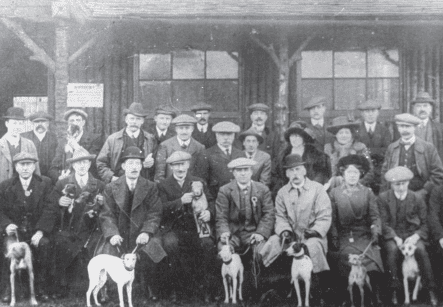
As Germany marched into Belgium on August 3rd 1914 the Dorking and District Whippet Racing Association was racing its dogs at the bank holiday races in Eastbourne.
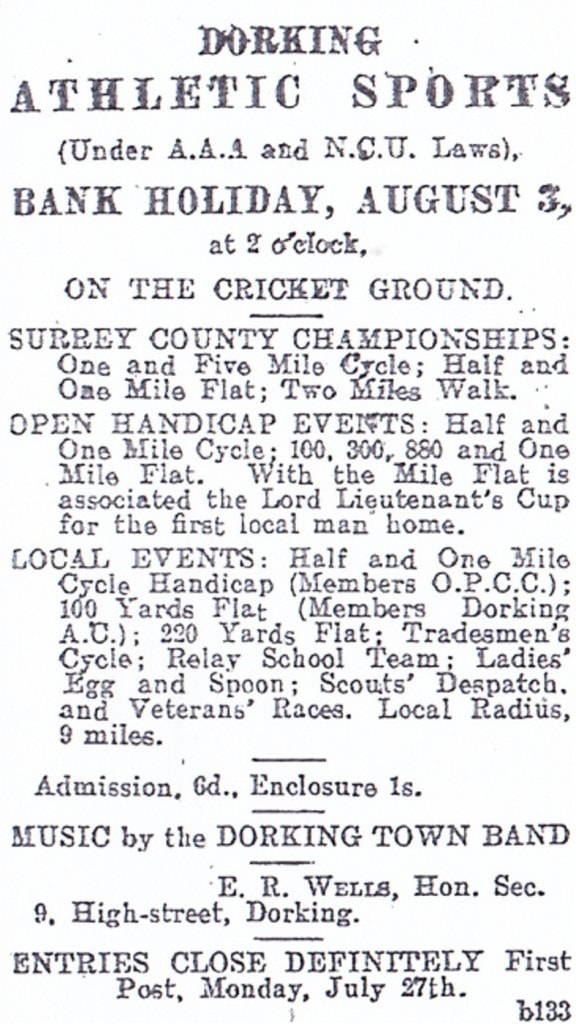
The annual Dorking athletic sports meet, which attracted 300 entries in 1914, many from outside the district, was known as one of the best for ‘flat’ and cycling events in the national calendar.
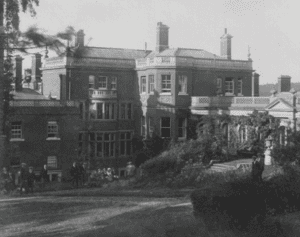
On the weekend before war was declared Lady Margaret Ryder was entertaining 150 supporters of the Dorking Branch of the National League for Opposing Women’s Suffrage to an event in her grounds at High Ashurst on Box Hill.
On August 4th post office staff struggled to process telegrams and mobilization orders as crowds gathered to read notices. When news came that the ultimatum to the Kaiser to withdraw from Belgium had expired the crowd sang patriotic songs in the High Street.
The Dorking territorial company was at its annual training near Salisbury on August 4th. The company arrived back in Dorking at 10pm that night. At 10am the next morning 99 men were inspected at the Drill Hall. Henry Cubitt told them that they were envied by those staying behind. ‘Are we downhearted?’ he asked them. ‘Are we afraid of the Germans?’
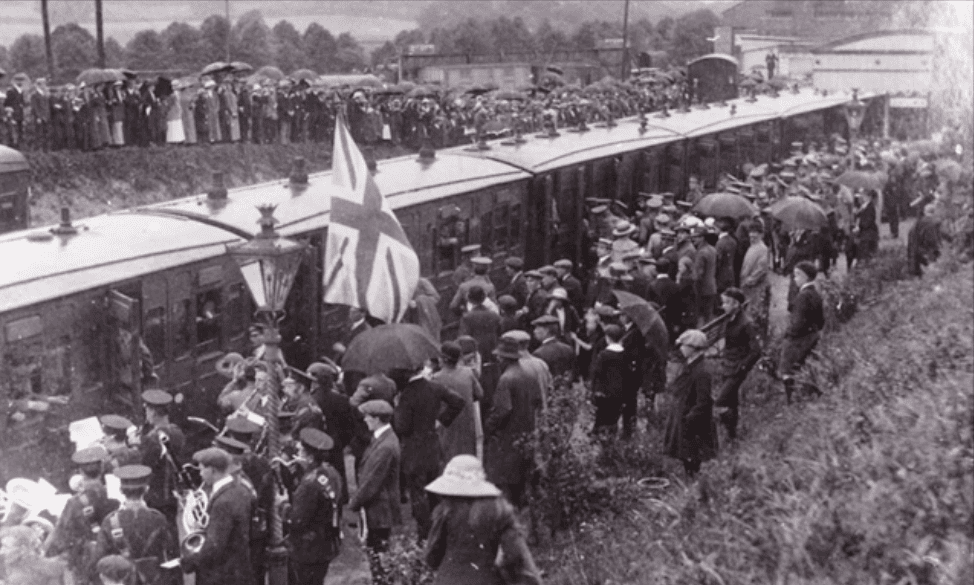
© Dorking Museum
The company then marched to the SER station, accompanied by the town band. Crowds lined the route and 2,000 watched from platforms and railway embankments as the men entrained.The Dorking company of the 5th Battalion the Queen’s (Royal West Surrey) Regiment leaving Dorking SER station on Tuesday 5th August 1914. The territorials had signed up to undertake duties at home and in the Empire in the event of war.
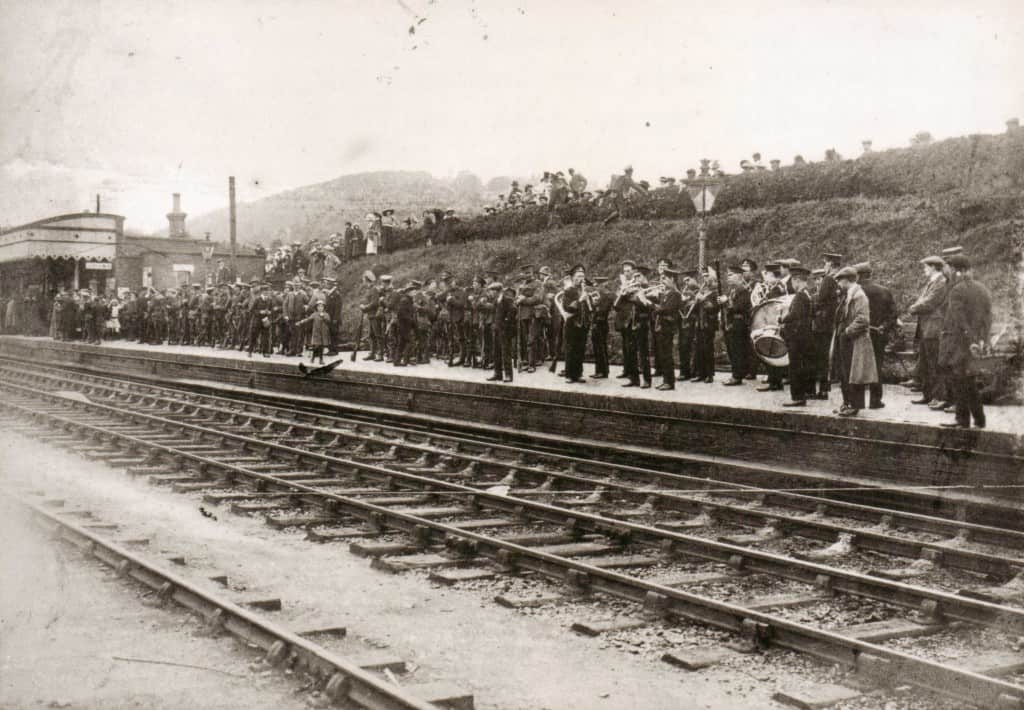
Their deployment enabled units of the regular army, which were policing the colonies, to be brought back to fight in France.’G’ company was based in Dorking and trained at the Drill Hall; it also had detachments which drilled in Holmwood and Shere. The company recruited from Dorking, Abinger, Brockham, Capel, Coldharbour, Gomshall, Holmwood, Newdigate, Ockley, Peaslake, Ranmore, Shere, Westcott and Wotton. Men from the Brockham area drilled with ‘A’ (Reigate) company.
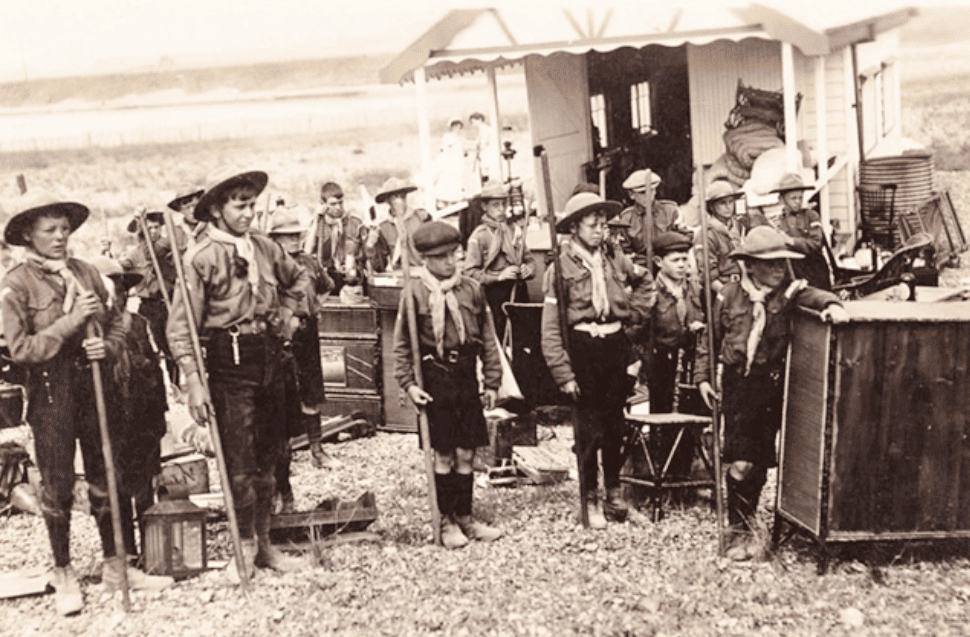
In the early days of the war Dorking boy scouts were at camp on the Sussex coast and they offered assistance to HM coastguard.
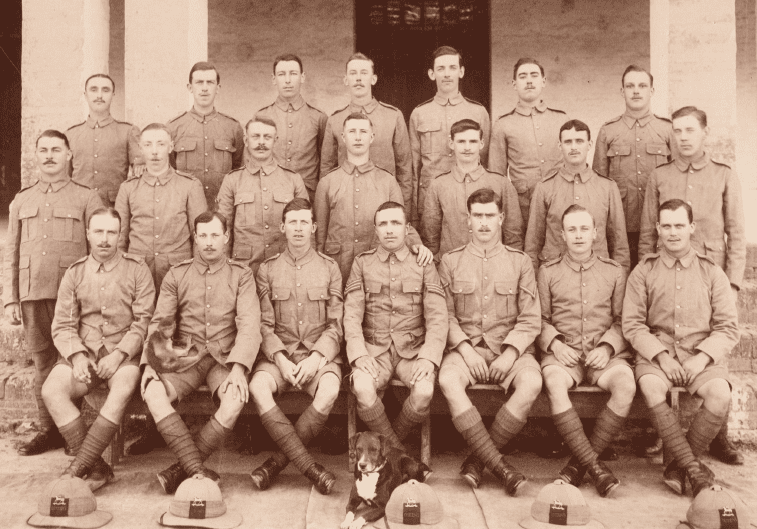
The Dorking company of the Queen’s (Royal West Surrey) Regiment serving in India where they were sent to relieve regular army troops.
So quickly were reservists and territorials called into service that employers had no notice of their departure. Council employees left having been paid their wages in advance but with three days’ work unperformed; the Council resolved to allow them to treat the monies overpaid as holiday pay.
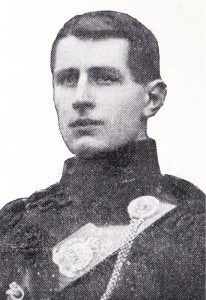
Captain WL Hodges, commanding officer of the Dorking company of territorials in 1914.
Last : Last Days of Peace
Next : A Volunteer Army?

